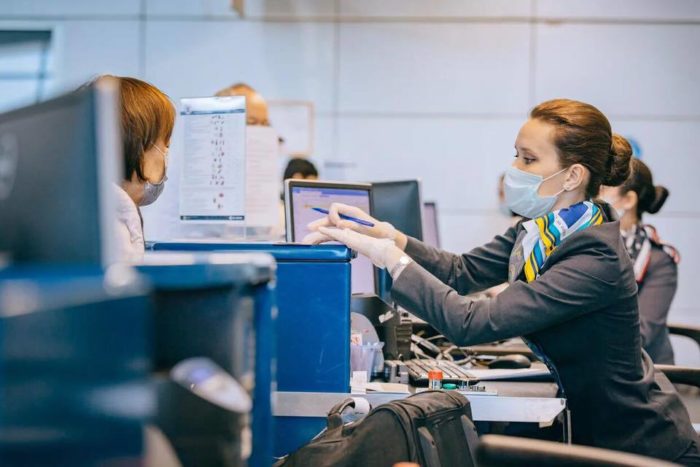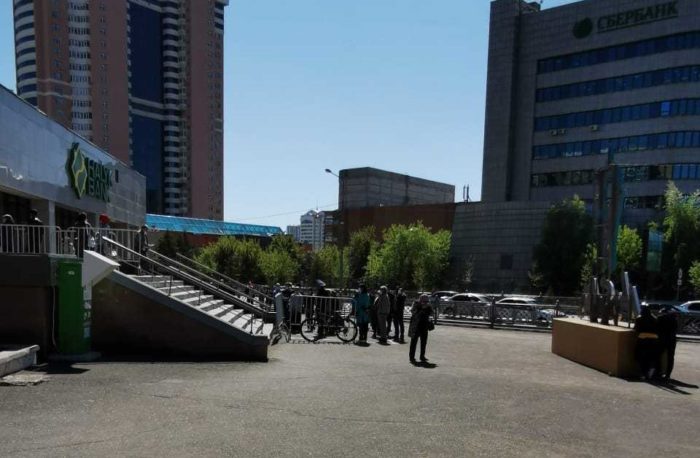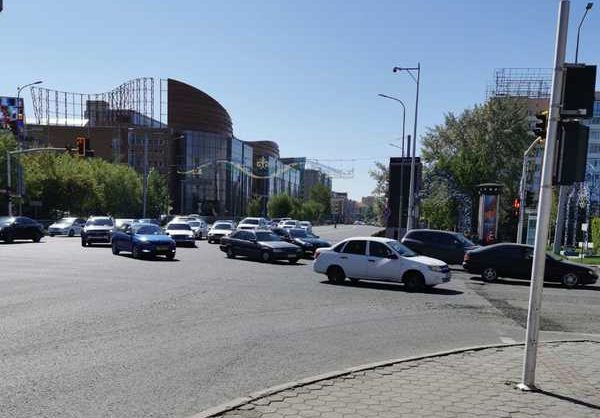Cities worldwide face an uncertain post-pandemic future, with many hard decisions ahead. The Kazakh capital of Nur-Sultan is starting to slowly open back up, with the government easing some restrictions on businesses and ordinary citizens. The road back to normalcy will be long and hard with no one quite sure what post-pandemic life will look like.

Starting May 1, Air Astana, SCAT, and Qazaq Airlines resumed their domestic flights between Almaty and Nur-Sultan. Photo credit: Air Astana press office.
Covid-19 Aftermath
Will we fly again as usual? How will we cope with crowded places? Do we even need to go back to work, if online work via Zoom has proven to be safer, more viable and more convenient? These questions will have to be addressed going forward.
Countries worldwide are following a similar trend of easing out of the lockdown gradually. Kazakhstan has been copying the strategies of these countries from the start and continues to do so now.
The government first eased restrictions on April 28 and then on May 4 began allowing some businesses to reopen, but only with strict sanitary guidelines.
In Nur-Sultan, photo and flower shops, hairdressing salons, medical centers, dental clinics, real estate companies, lawyers, insurance companies and exchange offices reopened on May 4th.

Queue to Halyk Bank office at Republic Avenue
Children were finally allowed to play on playgrounds starting April 28 and people can now go for a jog in the park or just leave their house in general.
Starting May 1, Air Astana, SCAT, and Qazaq Airlines began resuming their domestic flights between Almaty and Nur-Sultan after more than a month of being grounded. Passengers are required to present official documents proving that they are free of COVID-19 and must undergo temperature checks before entering the airport.
Nur-Sultan administration plans to resume public transportation on May 11, but the final decision holds on the government commission.
Despite the ease of the restrictions, many are still wary of a possible second wave. People continue to keep social distance and avoid each other, while not wearing a mask immediately causes ambiguous and sometimes aggressive stares.
As the citizens are waiting for the state of emergency to end, they might still have to stay at home, said Kazakh President Kassym-Jomart Tokayev.
“If the situation does not worsen, then the state of emergency will end May 11. But the lockdown measures will remain. This is very important for the safety of the people. I hope that our citizens will steadily return to normal life. We have a long-term strategic development plan,” assured Tokayev.

More cars are now on the streets.
Aside from changing our daily routines, the pandemic also affected our values.
Tengrinews, a popular news website in Kazakhstan, recently surveyed its readers on how coronavirus has changed their lives.
Twenty-three percent of the respondents said they would now start saving money and avoid debts.
Another 19 percent said they started to value more what they have and try to skew away from a consumerist way of life.
At least 17 percent revised their life priorities and values. They also started planning how to change their lives for the better once the situation is normalized.
The pandemic has also forced people to spend more time with families, even under stressful conditions, and for 14 percent of the respondents, they started to value this opportunity more. Though five percent of the respondents said they want to escape and live alone.
“My work has changed. I no longer need to go to the city to attend meetings. I live outside the city and work here as well. I have time for my family, and I do not need to wake up at 5 a.m. I get pleasure from my work and life now,” said one of the respondents, as quoted by Tengrinews.
While many parents have struggled with their kids switching to home education, some came up with the positive side of the situation.
“It became clear that distance education should be introduced. Our kid is learning with great pleasure and gains the same knowledge. There is no desire now to go to school, carry heavy backpacks, and sit for hours in crowded classrooms. It turns out they can study without it. When the Ministry of Education will understand that?” said a survey respondent.
The first coronavirus case in Kazakhstan was confirmed March 13 and Tokayev announced a state of emergency March 16. The cities in Kazakhstan, one by one, started going into lockdown.
The quarantine was tightened March 30th, allowing only essential jobs to continue and people going outside only for groceries and medicines.
Thousands of people had to immediately get used to working remotely, while many more were forced to unpaid leave. Business owners still struggle with sluggish production, some with zero profits, and still huge rents.
The government spent nearly six trillion tenge (US$13,5 billion) to support citizens who lost their jobs and earnings due to the pandemic and small businesses.
Once bustling streets became lifeless and empty within a day. Life with masks and sanitizers, though both products became increasingly difficult to find, became normal.

